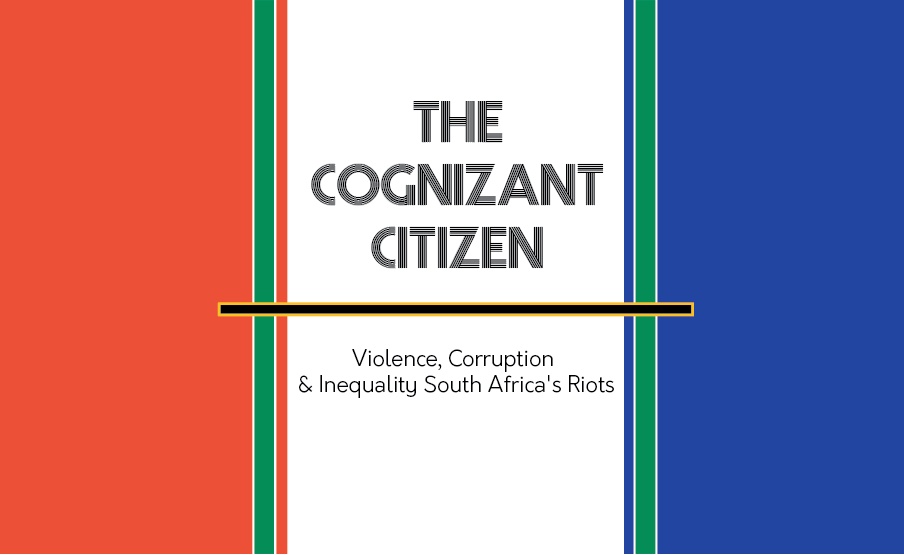
Under the spotlight — South Africa
South Africa saw the worst violence and riots in the last 25 years, since the Apartheid, in the third week of July 2021. The riots resulted from the recent suspension of Ace Magashule, the Secretary-General of the ruling party, the African National Congress (ANC) and the arrest of Former President Jacob Zuma. They are both accused of several counts of corruption. Political repression in post-Apartheid South Africa and struggles in the ANC have affected the masses for years, inducing feelings of distrust and anxiety. In recent years, the country’s history has been blotted with riots mobilised by loyal Zuma supporters, specifically targetting Indian origin traders and businesses.
The renowned “rainbow country” is the worldwide poster child of economic disparity and is distinguished by its generational battle for racial equality. Notwithstanding the astronomical wealth and abundance of resources, the nation still lies in paralysing poverty which disables its socio-economic stability. The post-apartheid Republic is based on the most liberal and contemporary constitution globally but is stuck in age-old problems such as corruption, governmental failure, tribalism and cronyism.
Zuma — Tzar of Megalomania
Jacob Gedleyihlekisa Zuma is a charismatic man, albeit having been plagued by poverty in his early days. He lost his father at a very young age, forcing his mother to take odd domestic jobs to support the family. He received no formal education besides the Soviet Union training that made him eligible for the military wing of the early ANC.
Zuma was fired from the post of deputy president under Thabo Mbeki’s term due to his involvement in certain corruption activities related to Schabir Shaik, a South African con artist, and a rape accusation, but was acquitted under procedural errors. However, Mbeki was soon forced to resign after losing his party’s confidence.
Meanwhile, through his charismatic persona and relatable, humble beginnings, Zuma was elected President, the head of state and government in the Republic of South Africa. However, over the nine years of his presidency, this confidence in him started dwindling.
A glance at Zuma’s criminal record and involvement in parastatal ploys justify the majority’s lack of faith in his leadership. The very reason for his dismissal under Mbeki’s term, Shaik, was the first domino in the fall of Zuma. He had paved the path to parole for Schabir Shaik and his subsequent release. Critics, moments after the death of Nelson Mandela, labelled him to be the amalgamation of the nation’s detestable traits like illiteracy and corruption.
Most feared that the nation would become a “banana republic” and often accredited him for a possible future as a failed state head. Damning evidence uncovered by various probes proves the political involvement and influence of the renowned Gupta brothers. Cabinet ministers testified against the brothers as they recounted being invited to their luxurious residence and offered political positions as assured by Zuma.
Gainsayer Guptas
The corruption allegations against President Zuma call into question his ties to three Indian-born businessmen — Atul Gupta, Ajay Gupta, and Rajesh Gupta. He is alleged to have assisted them in plundering state resources and wielding influence over government policies. The Guptas are an affluent Indian-born family with South African business interests. The charge against him states that President Zuma has been siphoning off state assets for a long time in relation to the Gupta brothers.
The Gupta Brothers are claimed to be such a regnant force that they nearly dictated major governance policies within Jacob Zuma’s regime. The brothers originally immigrated to a post-Apartheid South Africa in 1993 from Saharanpur, Uttar Pradesh, where they maintained a small business. According to some reports, the Guptas began selling shoes from their car in South Africa before establishing their own company, ‘Sahara Computers’. They quickly noticed the constraints within South Africa’s bureaucratic red tape and began dismally exploiting them. Their business thrived, and in the process, they started forging strong political ties. They expanded their commercial network beyond computers and into areas such as air travel, mining and media.
“Zupta”, the term coined for the allegiance by their critics, has its influential roots deep into the nations political hierarchy. The Gupta family has been in the limelight in South Africa for a long time, with claims that it lobbied President Zuma to remove ministers who did not support its business interests. In 2016, accusations surfaced that the Gupta Brothers had promised the then deputy finance minister an upgrade to the role of finance minister provided he supported their commercial interests. The Guptas allegedly agreed to pay 600 million rands (40.9 million USD) for the same.
In 2017, over 1 lakh emails were leaked, revealing the extent to which the Gupta Brothers had impacted the Jacob Zuma regime. Enormous protests followed against Jacob Zuma and the Gupta family as a result of the leak. The Opposition soon launched a no-confidence vote against Jacob Zuma in February 2018. The ANC pushed Jacob Zuma to resign as South Africa’s President, and the Brothers fled to the UAE shortly thereafter. In the wake of recent events, the conglomerate accusations have now come back to haunt Jacob Zuma.
The Contentious Case of Corruption
The current turmoil in the nation began when former President Jacob Zuma was arrested on Wednesday, July 7th. The Constitutional Court sentenced Zuma to a 15 month-long jail sentence on the charges of contempt of court on June 29th for failing to testify in his ongoing corruption probe. The former detainee of the Apartheid system had kept the country on edge by attempting every legal means to avoid incarceration.
Many hailed Zuma’s punishment for ignoring the 3-year long investigation as a benchmark for punishing state heads involved in corruption.
It is the first occasion in post-apartheid South Africa that a former president has been jailed. Many regarded this as the climax of a deplorable downfall for a once-heralded liberator who fought Apartheid alongside Nelson Mandela.
During Zuma’s presidency, the degree of cronyism within the ruling ANC Party became explicitly clear. The corruption resulted in the national tax agency being decimated, preferential corporate contracts, and rivals being shot down in a race for riches and power.
The Occupy protests in the country’s two most populous provinces exemplify a classic tragedy of extreme inequality. A more expansive global tale can be seen among these images of looting and violence, which saw at least 212 people murdered during the worst upheaval in the nation’s history since Apartheid ended in 1994.
This is what happens when a prominent political party emphasises their individual ambitions over the integrity of the nation’s democracy.
Though Zuma’s presidency was marred by corruption and incompetence, he remains a populist figure revered in some quarters, notably among Zulus in his native region of KwaZulu-Natal.
Protests erupted, demanding the former President’s release. While Zuma’s arrest may have fueled the violence, it is being aggravated by underlying issues in the nation, including a raging pandemic and a collapsing economy.
In addition, over a billion rands in losses have already been incurred on the economic front. Economists estimate a doubling of this cost as companies are forced to close, and local businesses are being set on fire. Warehouses and businesses have also been plundered in Johannesburg and Durban, South Africa’s commercial capitals.
In addition, Covid-19 vaccination centres are being shut down, even though the country is in the grip of the third wave of Covid-19. The issue at stake today, as illustrated by the riots, is more than just inequity. While Zuma and his supporters are embroiled in a political battle inside the ANC, innocent lives are being lost, and the economy is disintegrating.
The Crippling Cost
The political ignominy that a Former Head of state, Jacob Zuma and the Former Premier of the Free State Province, Ace Magashule, were punished outweighed the ongoing pandemic.
The areas most affected by the riots, KwaZulu-Natal and Gauteng, are in the economic epicentres of the nation, Durban and Johannesburg, respectively.
The failure of the local police to take proactive measures required the army to be deployed. The local communities also stepped in with donations in kind. The insurrection cost the nation a loss of around $1 billion. The looting of business centres, shopping malls and medical centres incurred an insurmountable loss that will take the nation time to recuperate.
More than thousands have been arrested for participating in the uproar that killed around 200 people. The deployment of 25,000 army troops to help police has achieved an unsettling stillness across the country. The highways are again open, and no violent events were recorded on Monday (July 19th 2021). Non-profit organisations are assisting in the cleanup of vandalised retail stores. The duration of the military’s presence on the streets is indefinite.
As the nation reels from this week-long cataclysm, it is still beleaguered with socio-economical problems. Critics draw similarities to the Capitol unrest in the USA earlier this year, with neglect from local law enforcement agencies, incitement from ignominious incarcerations coupled with the speed of misinformation through social media.
Written by Shirley Asangi and Adil Khan for MTTN
Edited by Anika Shukla by MTTN
Featured Image by Adil Khan for MTTN
Images by Getty Images
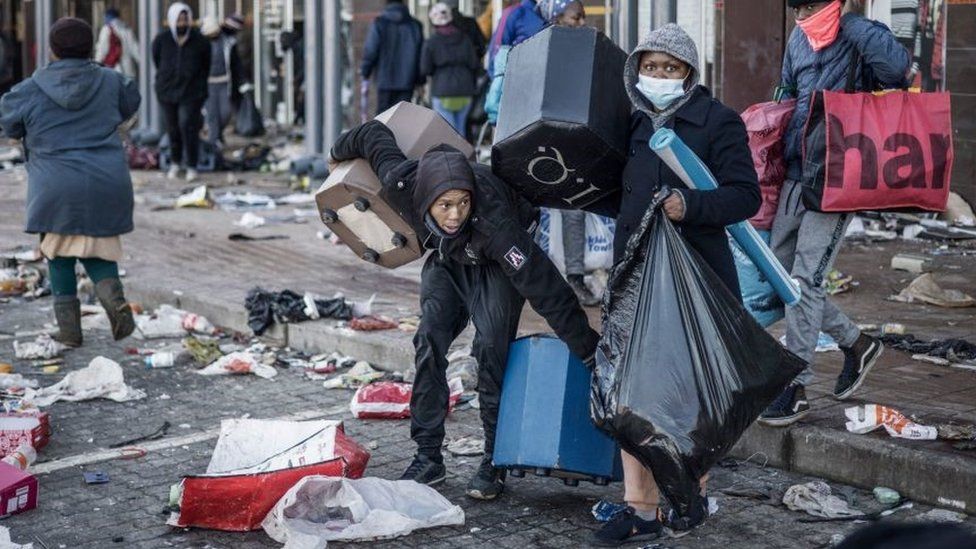
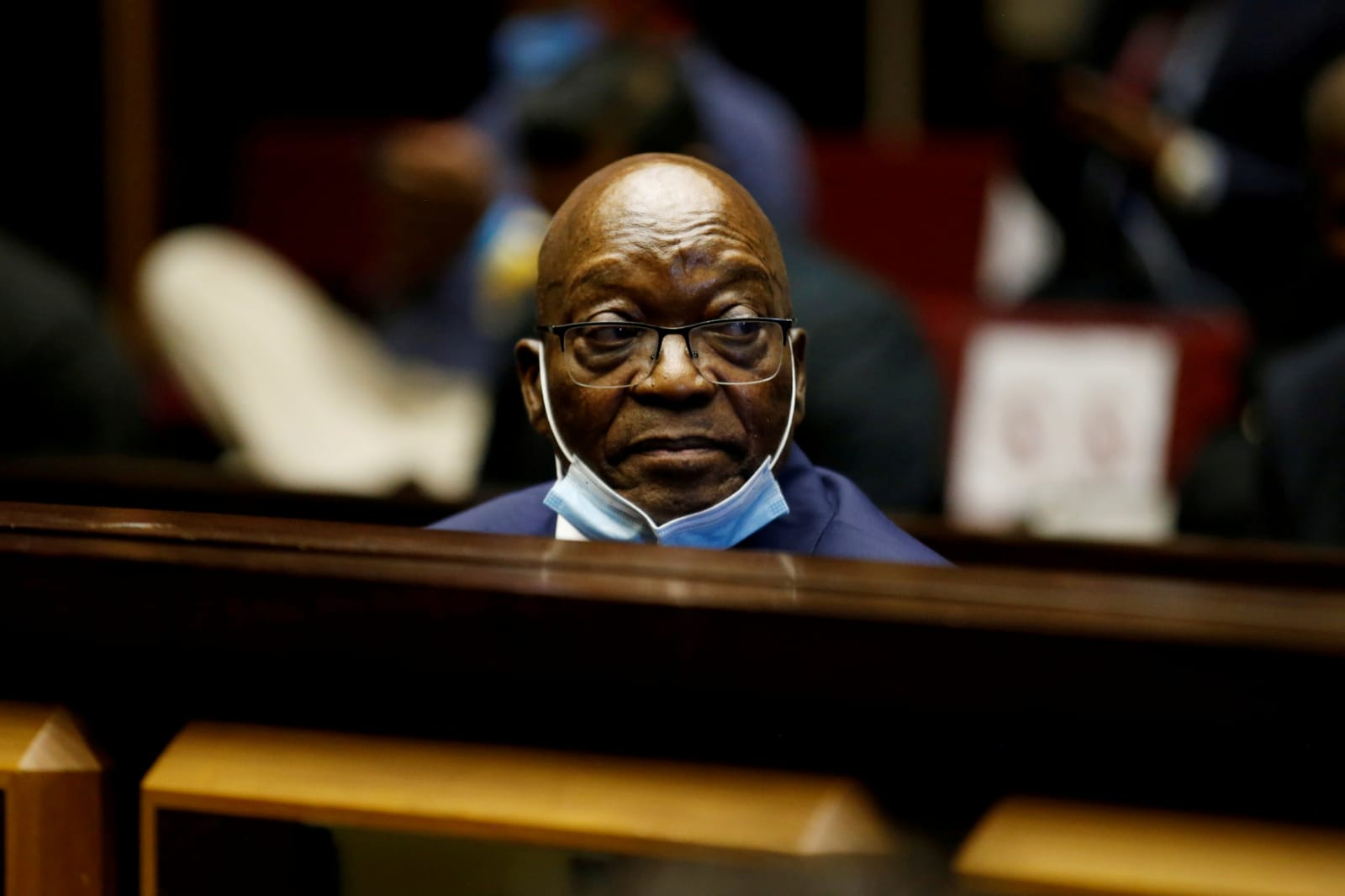
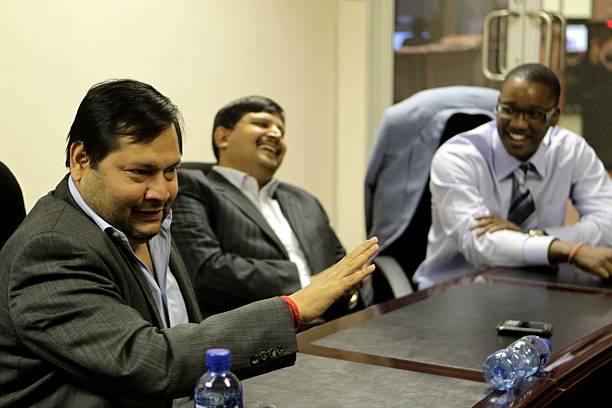
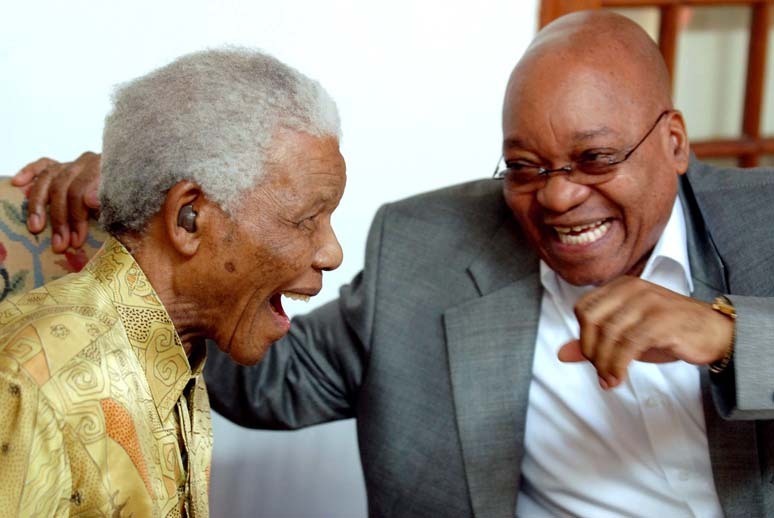
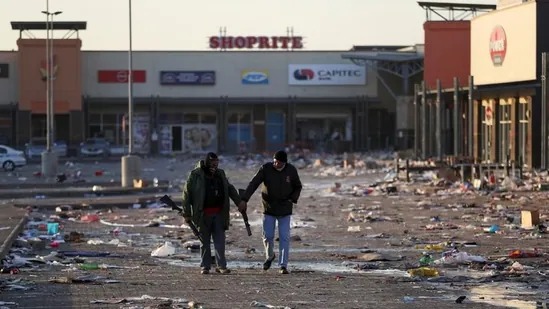
Leave a Reply
You must be logged in to post a comment.